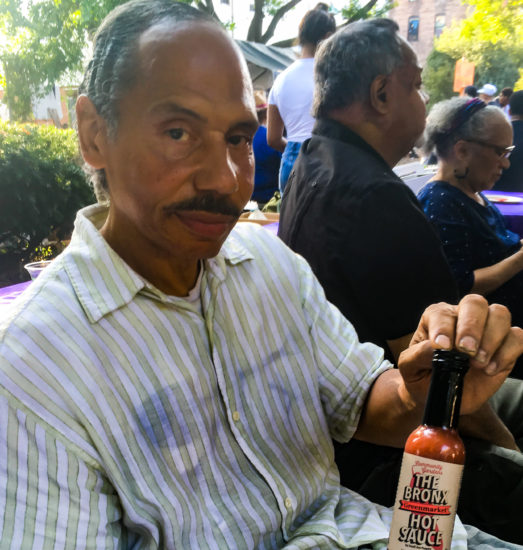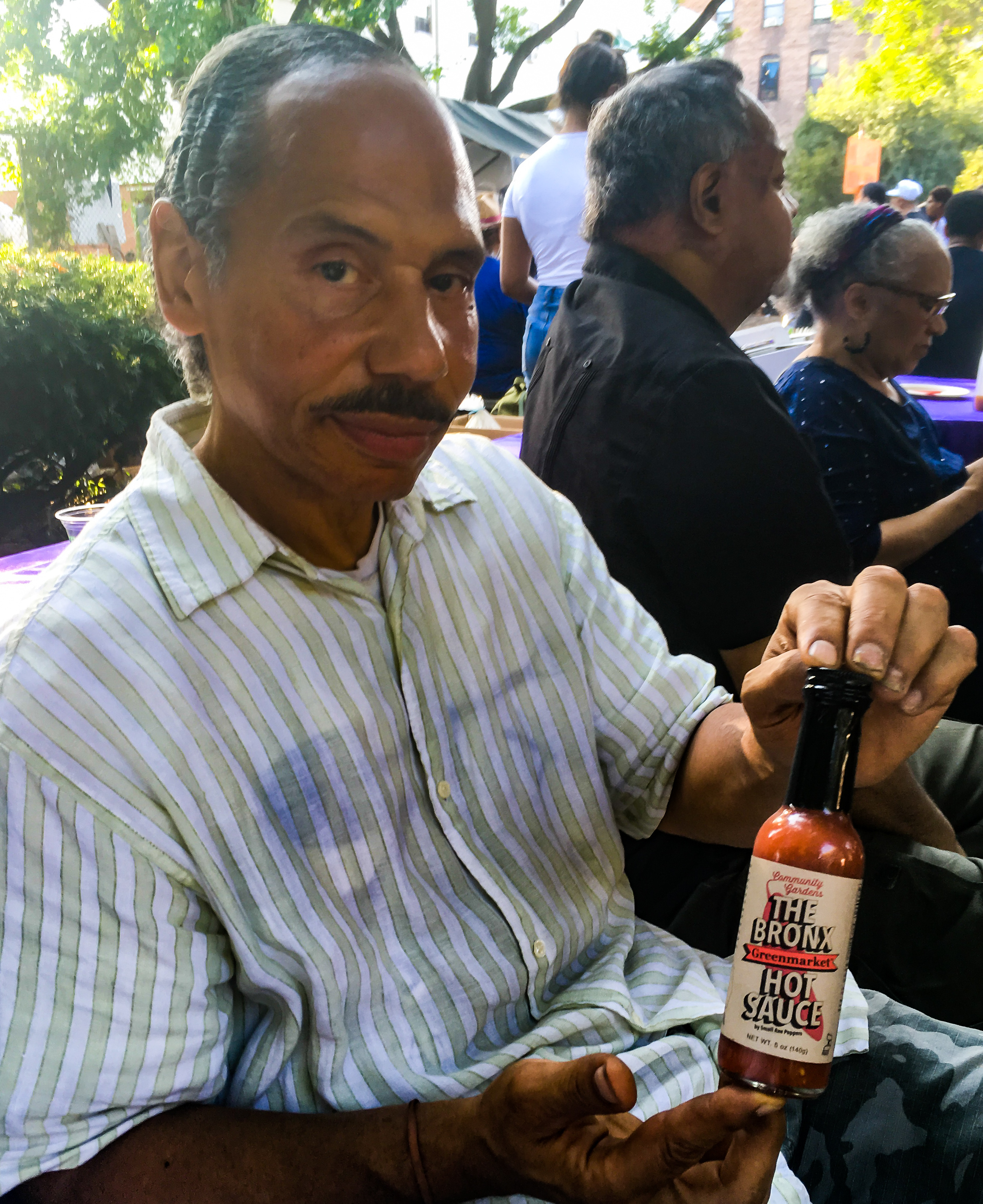
Ray Figueroa holds up a bottle of Hot Sauce. Photo: Suzannah Cavanaugh[/caption]
On a late September afternoon, Brook Park Community Garden buzzed with local residents. Renowned environmental advocate Ray Figueroa, who over the years has directed numerous programs in the garden, held court at a central picnic bench.
“This is what community gardens represent,” said Figueroa. He gestured to the 200-person turnout for the Big Bronx Sancochazo, a festival celebrating the Latin American stew Sancocho. “The potential for organic, grassroots community development happening. That’s the real significance of community gardens.”
But a new licensing agreement puts the iconic role of community gardens at risk, he and other advocates worry.
For six months, community gardens across the city and GreenThumb, the division of NYC Parks that oversees them, have waged legal battle over restrictive clauses in this year’s license that have left gardeners and communities fearful for the future of their green spaces.
In April, the New York City Community Garden Coalition (NYCCGC) urged garden leaders not to sign those licenses, hoping to negotiate on three sticking points: a clause allowing GreenThumb to close gardens at will, another permitting audits without notice, and another that would hold gardeners liable for all accidents on garden property, and related legal expenses.
Since 2016, Mike Young has run a carpentry workshop for at-risk teens at Padre Plaza community garden on E. 139th Street in Mott Haven. If he signs the new deal, Young would become personally liable for each student’s safety. To protect himself, he would need insurance, which, as an unpaid garden steward, he says he can’t afford.
Of the Bronx’s 46 community gardens, 40 have not signed for fear the clause would force them to shutter programming that would include holiday events, farmer’s markets and youth programs, said Young.
“Nothing bad has ever happened in the garden, but now that they’ve put things in writing, I’m like: ‘Wow, what if?’” he said.
After three extensions to allow for negotiations, the Sept. 20 deadline passed with 30 percent of city gardens still unsigned to the new deal. Before it passed, Young and Figueroa alleged that GreenThumb pressured gardens to sign on over the phone, and threatened to enforce lock-outs if they refused.
The parks department declined to comment, instead issuing two statements, the second of which says that the department currently has no plans to lock out gardens.
In the weeks following the deadline, the gardens have gained support from a number of city council members. NYCCGC Executive Director Aziz Dekhan said that the threats have stopped, but that negotiations remain at a standstill.
Figueroa, who is among the unsigned, says he is concerned that the city will terminate its deal with Brook Park, adding that parks officials are applying unfair pressure on gardens, as a way of undermining them. Last winter, he decided not to shovel the sidewalks in front of one side of the garden after having exhausted himself shoveling out the more heavily-trafficked side. He hoped the city would recognize his good faith effort, and let it go.
“The next day, we were issued a violation from GreenThumb, and I blew a gasket,” said Figueroa.
Advocates also worry that the new licenses would allow GreenThumb to conduct surveys without providing notice, exposing gardens to minor violations, each of which would require the garden to remedy the error and pay a fine. Figueroa worries that that could cause fines to pile up, exposing gardens to closure.
Despite the pressures, Figueroa says he is confident that other gardens will refuse to capitulate to the mounting pressure, just as he plans to do. The stakes are too high.
“This is not some frivolous struggle around a landscaping amenity,” he said. “Community is being cultivated. That’s why these are so important.”

